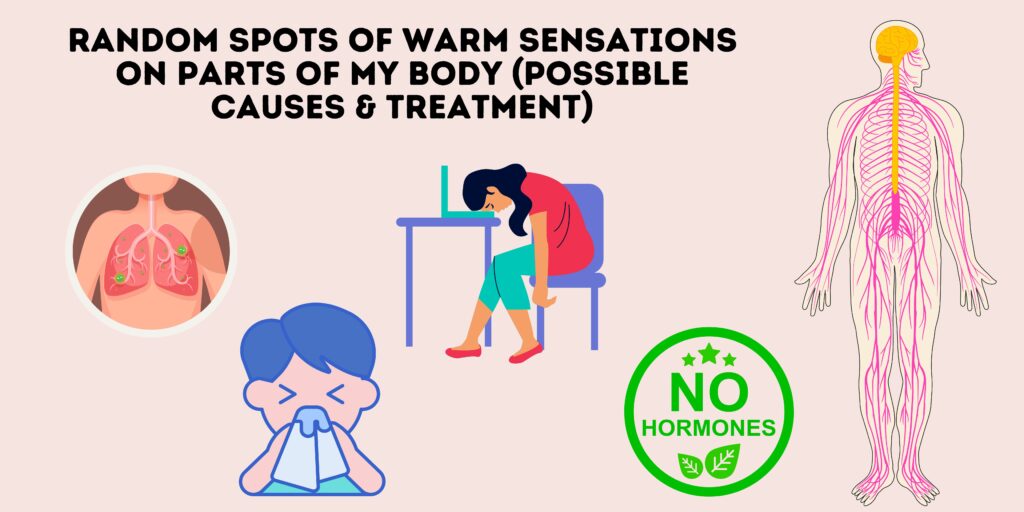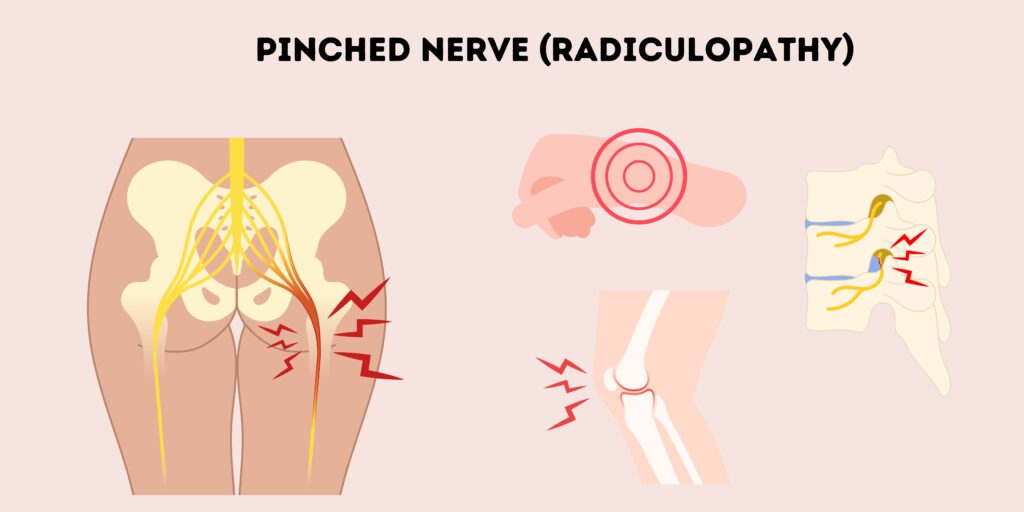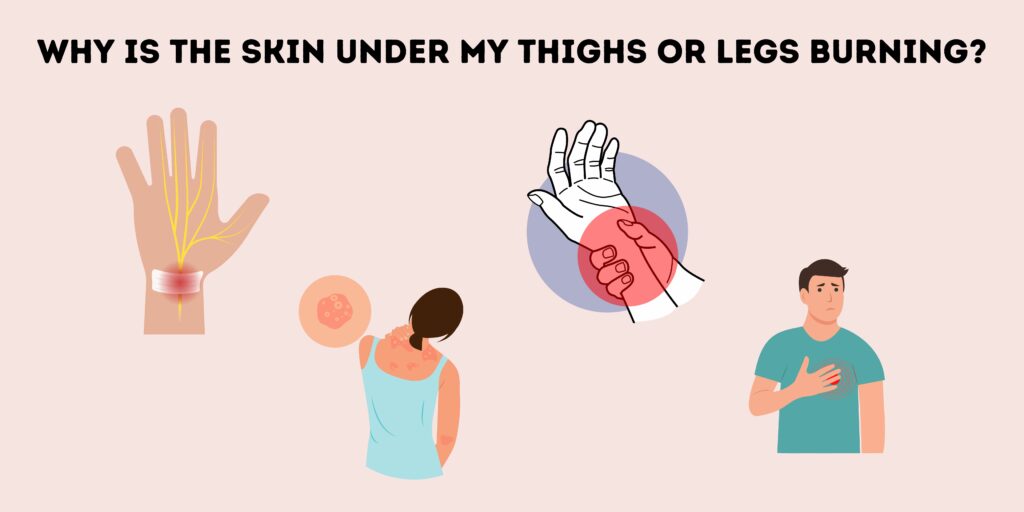
If you’ve ever experienced random hot spots on your body, you may be wondering what could be causing them and what you can do to get rid of them. Here are some possible causes and treatments to consider:
Possible Causes:
- Hormonal Changes: Fluctuations in hormones can cause hot flashes and sweating, which may lead to random hot spots on your body. This is often experienced during menopause, but can also occur during puberty, pregnancy, and certain medical conditions.
- Nerve Damage: Damage to the nerves that control temperature regulation can cause a person to feel hot or cold sensations in certain areas of the body. This can be caused by injury, illness, or certain medications.
- Anxiety or Stress: Emotional stress can cause the body to release hormones that can cause a range of physical symptoms, including hot flashes or random hot spots on the body.
- Allergic Reactions: Certain allergens can cause an inflammatory response in the body, which may result in hot spots on the skin.
- Infections: Certain bacterial or viral infections can cause a fever, which may lead to hot spots on the body.
Treatment Options:
- Hormone Therapy: If hormonal changes are the cause of your hot spots, hormone therapy may be an option to help alleviate symptoms.
- Medications: Depending on the underlying cause of your hot spots, your doctor may prescribe medications to help manage symptoms or address the root cause of the issue.
- Relaxation Techniques: If stress or anxiety is the cause of your hot spots, practicing relaxation techniques such as deep breathing, meditation, or yoga may help reduce symptoms.
- Allergy Treatment: If allergies are causing your hot spots, avoiding the allergen or taking allergy medications may be helpful.
- Treatment for Infections: If your hot spots are caused by an infection, your doctor may prescribe antibiotics or antiviral medications to help clear up the infection.
In conclusion, if you’re experiencing random hot spots on your body, it’s important to identify the underlying cause so that you can receive proper treatment. Be sure to talk to your healthcare provider if you’re experiencing symptoms or if you have any concerns about your health.
1. Warm spots due to anxiety
If you’ve ever experienced random hot spots on your body, anxiety may be the cause. Here’s what you need to know about this phenomenon:
Understanding Anxiety-Related Hot Spots:
When you experience anxiety, your body releases hormones that trigger the fight-or-flight response. This response can cause a range of physical symptoms, including hot flashes or random hot spots on the body. These hot spots can be a source of discomfort and concern, but they are generally harmless.
Identifying Anxiety as the Cause:
If you suspect that your hot spots are related to anxiety, there are a few signs to look for. You may notice that the hot spots occur during times of high stress or anxiety, such as before a big presentation or during a difficult conversation. You may also experience other symptoms of anxiety, such as sweating, rapid heartbeat, or feeling on edge.
Managing Anxiety-Related Hot Spots:
While anxiety-related hot spots may be uncomfortable, there are several strategies that can help manage symptoms:
- Deep breathing: Taking slow, deep breaths can help calm the body and reduce feelings of anxiety.
- Progressive muscle relaxation: This technique involves tensing and relaxing different muscle groups to help release tension and reduce anxiety.
- Mindfulness meditation: This practice involves focusing on the present moment and cultivating a sense of calm.
- Exercise: Regular exercise can help reduce feelings of anxiety and promote overall wellbeing.
- Talk therapy: Seeing a therapist can be helpful in addressing underlying anxiety and learning coping strategies.
When to Seek Help:
While anxiety-related hot spots are generally harmless, they can sometimes be a symptom of a more serious medical condition. If you’re experiencing other symptoms in addition to hot spots, or if your symptoms are interfering with your daily life, it’s important to seek medical attention. Your healthcare provider can help rule out other potential causes and recommend appropriate treatment.
In conclusion, if you’re experiencing random hot spots on your body, anxiety may be the culprit. Understanding the link between anxiety and physical symptoms can help you manage symptoms and get the support you need.
2. Pinched nerve (radiculopathy)

If you’re experiencing random hot spots on your body along with other symptoms such as numbness, tingling, or weakness, you may have a pinched nerve, also known as radiculopathy. Here’s what you need to know:
Understanding Pinched Nerves:
A pinched nerve occurs when too much pressure is applied to a nerve by surrounding tissues such as muscles, bones, or cartilage. This pressure can cause a range of symptoms, including pain, numbness, tingling, and weakness. In some cases, pinched nerves can also cause random hot spots on the body.
Identifying Pinched Nerve Symptoms:
In addition to random hot spots on the body, other symptoms of a pinched nerve may include:
- Numbness or tingling in the affected area
- Weakness in the affected area
- Pain that radiates along the nerve pathway
- Difficulty moving the affected area
Common Causes of Pinched Nerves:
Some common causes of pinched nerves include:
- Herniated discs: When the discs between the vertebrae in the spine become damaged or displaced, they can press on nearby nerves.
- Osteoarthritis: This condition can cause bone spurs to develop, which can press on nerves.
- Repetitive motions: Certain activities or jobs that require repetitive motions can lead to pinched nerves over time.
- Injury: A sudden injury such as a fall or car accident can cause a pinched nerve.
Treatment Options:
The treatment for a pinched nerve depends on the underlying cause and severity of the condition. Some possible treatments include:
- Rest and ice: In mild cases, rest and applying ice to the affected area can help reduce inflammation and alleviate symptoms.
- Physical therapy: A physical therapist can work with you to develop exercises and stretches to help alleviate symptoms and improve mobility.
- Medications: Over-the-counter pain relievers or prescription medications may be helpful in managing pain and inflammation.
- Surgery: In severe cases, surgery may be necessary to relieve pressure on the affected nerve.
When to Seek Medical Attention:
If you’re experiencing random hot spots on your body along with other symptoms such as numbness, tingling, or weakness, it’s important to seek medical attention. Your healthcare provider can help diagnose the underlying cause of your symptoms and recommend appropriate treatment.
In conclusion, if you’re experiencing random hot spots on your body along with other symptoms, you may have a pinched nerve. Understanding the symptoms and causes of this condition can help you seek appropriate treatment and alleviate symptoms.
3. Arthritis
If you’re experiencing random hot spots on your body along with joint pain and stiffness, you may have arthritis. Here’s what you need to know about this condition:
Understanding Arthritis:
Arthritis is a condition that causes inflammation in the joints, leading to pain, stiffness, and reduced mobility. There are many different types of arthritis, but the most common forms are osteoarthritis and rheumatoid arthritis.
Identifying Arthritis Symptoms:
In addition to random hot spots on the body, other symptoms of arthritis may include:
- Joint pain and stiffness, particularly in the morning or after periods of inactivity
- Swelling and tenderness in the affected joints
- Reduced range of motion in the affected joints
- Fatigue and general malaise
Common Causes of Arthritis:
Some common causes of arthritis include:
- Age: As we age, the cartilage that cushions the joints can become worn down, leading to arthritis.
- Genetics: Some types of arthritis, such as rheumatoid arthritis, have a genetic component.
- Injury: A previous injury to a joint can increase the risk of developing arthritis.
- Lifestyle factors: Being overweight or not getting enough exercise can increase the risk of developing arthritis.
Treatment Options:
The treatment for arthritis depends on the type and severity of the condition. Some possible treatments include:
- Medications: Over-the-counter pain relievers or prescription medications may be helpful in managing pain and inflammation.
- Physical therapy: A physical therapist can work with you to develop exercises and stretches to help alleviate symptoms and improve mobility.
- Joint injections: In some cases, injections of corticosteroids or hyaluronic acid may be helpful in reducing inflammation and improving joint function.
- Surgery: In severe cases, surgery may be necessary to repair or replace a damaged joint.
When to Seek Medical Attention:
If you’re experiencing random hot spots on your body along with joint pain and stiffness, it’s important to seek medical attention. Your healthcare provider can help diagnose the underlying cause of your symptoms and recommend appropriate treatment.
In conclusion, if you’re experiencing random hot spots on your body along with joint pain and stiffness, you may have arthritis. Understanding the symptoms and causes of this condition can help you seek appropriate treatment and alleviate symptoms.
Why is the skin under my thighs or legs burning?

If you’re experiencing a burning sensation under your thighs or legs, it can be a cause for concern. Here’s what you need to know about this condition:
Understanding the Burning Sensation:
A burning sensation under the thighs or legs can be caused by a number of factors. It can be a symptom of a skin condition, nerve damage, or even an underlying medical condition.
Identifying Symptoms:
In addition to random hot spots on the body, other symptoms may include:
- Tingling or numbness
- Itching or rash
- Redness or swelling
- Pain or discomfort
Possible Causes:
There are several possible causes of a burning sensation under the thighs or legs, including:
- Skin conditions: Conditions such as eczema, psoriasis, or contact dermatitis can cause a burning sensation and rash on the skin.
- Nerve damage: Damage to the nerves in the legs can cause a burning sensation, along with numbness, tingling, or weakness.
- Circulation problems: Poor circulation can cause a burning sensation in the legs, particularly after prolonged periods of standing or sitting.
- Diabetes: High blood sugar levels can cause nerve damage, leading to a burning sensation in the legs.
Treatment Options:
The treatment for a burning sensation under the thighs or legs depends on the underlying cause. Some possible treatments include:
- Medications: Over-the-counter pain relievers or prescription medications may be helpful in managing pain and inflammation.
- Topical treatments: Creams or ointments may be prescribed to help relieve itching or burning associated with skin conditions.
- Lifestyle changes: Making changes to your diet and exercise habits can help improve circulation and alleviate symptoms.
- Nerve stimulation: In some cases, electrical stimulation of the nerves may be helpful in reducing symptoms.
When to Seek Medical Attention:
If you’re experiencing a burning sensation under your thighs or legs along with other symptoms, it’s important to seek medical attention. Your healthcare provider can help diagnose the underlying cause of your symptoms and recommend appropriate treatment.
In conclusion, a burning sensation under the thighs or legs can be a cause for concern. Understanding the symptoms and possible causes of this condition can help you seek appropriate treatment and alleviate symptoms.
Takeaway
In summary, random hot spots on the body can be a cause for concern and may indicate an underlying medical condition. Here are some key takeaways to keep in mind:
Listen to Your Body:
If you’re experiencing random hot spots on your body, it’s important to listen to your body and pay attention to any other symptoms that may be present. This can help you identify any potential underlying causes and seek appropriate treatment.
Possible Causes:
There are several possible causes of random hot spots on the body, including anxiety, pinched nerves, arthritis, and skin conditions such as shingles. Understanding the potential causes can help you seek appropriate treatment and alleviate symptoms.
Treatment Options:
The treatment for random hot spots on the body depends on the underlying cause. Some possible treatments may include medication, lifestyle changes, or nerve stimulation therapy. It’s important to work with your healthcare provider to determine the best course of treatment for your individual needs.
When to Seek Medical Attention:
If you’re experiencing random hot spots on your body along with other symptoms, it’s important to seek medical attention. Your healthcare provider can help diagnose the underlying cause of your symptoms and recommend appropriate treatment.
Prevention:
While not all cases of random hot spots on the body can be prevented, there are some steps you can take to reduce your risk. This may include maintaining a healthy lifestyle, managing stress levels, and avoiding triggers that may exacerbate your symptoms.
In conclusion, if you’re experiencing random hot spots on your body, it’s important to take note of any other symptoms and seek medical attention if necessary. With the right diagnosis and treatment, you can alleviate symptoms and improve your overall quality of life.